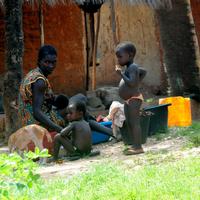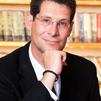Towards the end of this year (2017), I wish to reflect on three exceptional moments of academic impetus:
Impetus 1: Turning against our future selves...(?!)
Age is the only category of discrimination that includes all humans – the other forms of discrimination all have a physical element of othering (gender, religion, race). However, older people are also often stigmatised and regarded with a disgust closely linked to fear – we all in a certain sense turn against our future selves. In her Kyoto Prize Public Lecture at the University of Oxford, Martha Nussbaum argues that stigma on the basis of age is a social problem, producing isolation, unhappiness and injustice such as discrimination in employment (either a lack of experience – too young; or forced retirement – too old).
In a further (unrelated) development I was invited to a COST Action meeting on Ageism in Bucharest and came under the impression that we haven’t even scratched the surface in conceptualizing ‘Ageism’ within the sub-Saharan Africa (SSA) context. Nussbaum and Bucharest prompt questions like:
Does a non-ageist society imply equivalence?
How do we account for differences (physical endurance, conventions) and relativities in terms of resource allocation (growing old in a very young society and vice versa)?
How are the discourses on forced retirement relevant to a world where most people are involved in the informal sector? How do we think about workability of older persons in contexts of huge youth unemployment?
Where does generativity end and abuse (emotional; financial) start?
Up and till we have some understanding of some of these issues, we might as well (for starters) embrace our amazing, continuously ageing bodies/selves and as Nussbaum suggests to “...sing the body electric”, Walt Whitman’s touching poem:
“I sing the body electric,
The armies of those I love engirth me and I engirth them,
They will not let me off till I go with them, respond to them,
And discorrupt them, and charge them full with the charge of the soul...
...O my body! I dare not desert the likes of you in other men and women, nor the likes of the parts of you,
I believe the likes of you are to stand or fall with the likes of the soul, (and that they are the soul,)
I believe the likes of you shall stand or fall with my poems, and that they are my poems,
Man’s, woman’s, child’s, youth’s, wife’s, husband’s, mother’s, father’s, young man’s, young woman’s poems,...
...Was it doubted that those who corrupt their own bodies conceal themselves?
And if those who defile the living are as bad as they who defile the dead?
And if the body does not do fully as much as the soul?
And if the body were not the soul, what is the soul?...
... The voice, articulation, language, whispering, shouting aloud,
Food, drink, pulse, digestion, sweat, sleep, walking, swimming,
Poise on the hips, leaping, reclining, embracing, arm-curving and tightening,
The continual changes of the flex of the mouth, and around the eyes,
The skin, the sunburnt shade, freckles, hair,
The curious sympathy one feels when feeling with the hand the naked meat of the body,
The circling rivers the breath, and breathing it in and out,
The beauty of the waist, and thence of the hips, and thence downward toward the knees,
The thin red jellies within you or within me, the bones and the marrow in the bones,
The exquisite realization of health;
O I say these are not the parts and poems of the body only, but of the soul,
O I say now these are the soul!”
Impetus 2: Imagination and a willingness to learn
I have met Mary Catherine Bateson in Oxford on 8 June 2017 at the Association for Anthropology, Gerontology, and the Life Course 10th Biennial Conference in Oxford where she was a keynote speaker. Mary Catherine Bateson, herself an accomplished anthropologist, is the only child of anthropologists Margaret Mead and Gregory Bateson. Under the theme “The Age of Active Wisdom: A new Stage in Human Evolution” she reflected on longevity and the fact that during the 20th century an unprecedented 30 extra years were added to life expectancy in the developed world. These extra 30 years should not be seen as tagged onto the life span but rather inserted throughout the lifecourse – a bit like when you add a new room to your house. The structure and functions of all the other rooms change as well: furniture are moved around into new positions; the newspaper is read in a different spot and coffee is enjoyed in the new room with the picture window. Likewise, with these 30 added years a whole life should be reconfigured and (evolutionary) the most effective way to adapt to longevity is through continuous learning/consciously figuring it out. As our life spans have increased, Bateson sees late middle age as an “improvisational art form calling for imagination and willingness to learn.”
Go figure...!
Impetus 3: The Third Demographic Dividend
Still on the 30 extra years...
These 30 additional years represent an exciting global prospect: if these longer lives are lived healthy and active, they will put older people in a position to contribute to the development of their communities. According to Professor Linda Fried who addressed the International Gerontological and Geriatrics Association (IAGG) at its Opening Plenary in San Francisco (July 2017), a Third Demographic Dividend is the demographic triumph during which there are increasing opportunities to build policies that invest in the potential of increased numbers of older adults in an ageing society to help secure a future and purpose for all ages. She further argues that a core principal during the Third Demographic Dividend is not to dissipate the potential and capabilities of any group, and that drawing on intergenerational synergies and cohesion will strengthen each generation as well as the society that builds them.
Given the demographic trends of the different race groups in, for example, South Africa, it might well be that South Africa could potentially experience a Second and a Third Demographic Dividend simultaneously. More generally the question in sub-Saharan Africa is how to harness these bulges towards potential dividends, especially against a backdrop of persisting poverty and inequalities...?
About the Author
Dr. Jaco Hoffman is a Senior Research Fellow at the Oxford Institute of Population Ageing and co-ordinates the African Research Network on Ageing (AFRAN) and the Society and Environment Research Cluster.
Comments Welcome:
We welcome your comments on this or any of the Institute's blog posts. Please feel free to email comments to be posted on your behalf to administrator@ageing.ox.ac.uk or use the Disqus facility linked below.
Opinions of the blogger is their own and not endorsed by the Institute
Comments Welcome: We welcome your comments on this or any of the Institute's blog posts. Please feel free to email comments to be posted on your behalf to administrator@ageing.ox.ac.uk or use the Disqus facility linked below.













